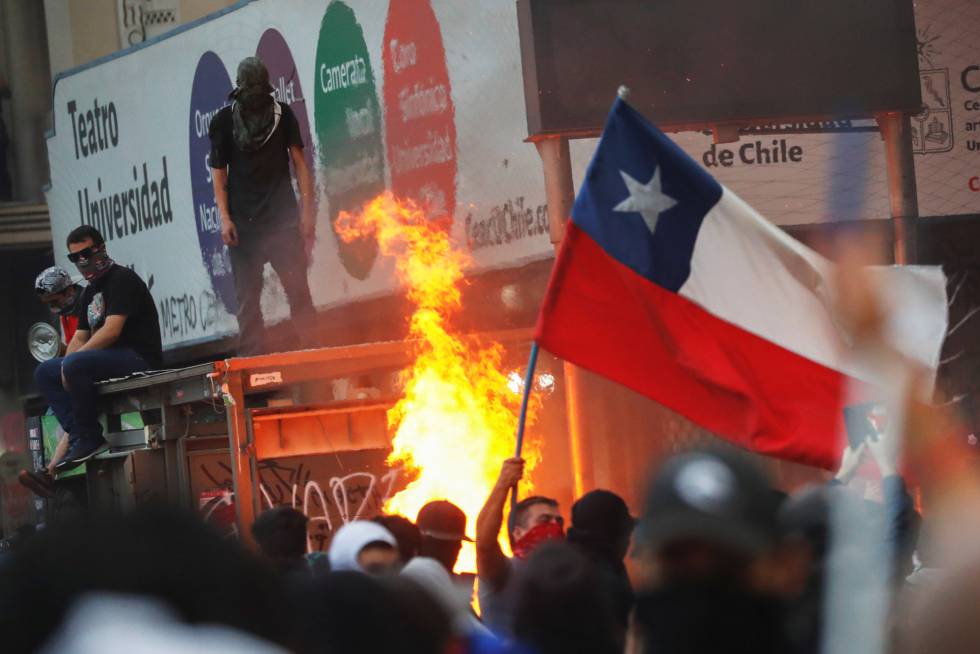
The images of the people of Chile burning are the
expression of what happens in this Latin American country.
A quiet
sector, sure to live a bubble, with income and services similar to Geneva, at
the expense of other sectors that live like Port-au-Prince. The first -
a very minority - is not affected by the value of urban transport, or the high
prices of food and medicine, or the pension they will have in the future, nor
does the increase in services hit them in their budget. Their income is so high
that they spend a much lower percentage of their income than the poorest, and
they can also save, capitalize, increase their assets.
That
life they lead has made them build and live according to partial images of a
much more complex reality. To this is added, that a large group of these
people feel that they owe nothing to anyone, that they have made themselves,
that is, they do not have the grateful memory that requires the construction of
a human community, of a common feeling. of nation. They can take their wealth elsewhere if this
country becomes insecure, even though they amassed it here with the work of
many.
Social
inequality creates unhappiness, Richard Wilkinson and Kate Pickett have been
saying this for some time according to empirical evidence. In his latest book,
he delves into "the mental consequences of inequality" demonstrating
that the most unequal societies are dysfunctional, there is a causal
relationship between income inequality, mental health and social problems.
On the
other hand, the rude social, geographical and residential segregation built by
the State-Market is an incubator of social violence given the continued
deterioration of life, insecurity and social tension, accentuating feelings of
disability and excess in society.
The
brutal educational segmentation, which has led to other neighborhoods with
bicentennial high schools, the frustration and disenchantment of children and
youth with greater difficulties, increases; even more so when they are not a
priority for those who govern and who do not wish to guarantee their rights for
fear of the demands that this implies. On this, the investigations are
devastating and a procession of foreign and Chilean experts has shown it. But
those who govern and have power if they can secure those same rights to their
children since they have the money to do so.
The
continued frustration at not being able to consume everything that the market
offers and promises (by associating much of these goods with happiness), makes
anger more intense and unleashes aggressiveness. With a development model that
has exacerbated consumption by reifying human beings, and considering having as
more important than being, the consequences we see are inevitable.
Is all
this resolved by the State of Siege and the first measures taken by President
Piñera? NO. He has not solved it before nor will he solve it now. The
new disillusioned generations, more aware of their dignity, do not expect gifts
but justice. They do not ambition the same privileges of those who today have
the power, but that these are distributed more equitably. They do not have unbridled expectations in
consumption but rather aspire to a basic tranquility in the material and to be
able to be realized.
SOURCE: EL PAIS
